College of Fisheries
Know about the College
To provide efficaciously skilled human resource; technical support; and outreach backup to the fisheries sector of the state, College of Fisheries, Guru Angad Dev Veterinary and Animal Sciences University, was established in April, 2008 to produce qualified fisheries professionals; to carry out basic, applied and adaptive research to achieve sustainable aquaculture production/productivity targets; and to disseminate the developed technologies to various stakeholders constituting the fisheries supply chain.
The College of Fisheries has five departments:
- Aquaculture
- Fisheries Resource Management
- Aquatic Environment
- Fish Processing Technology
- Fish Engineering
The college has competent experienced faculty and is well equipped with lab and farm facilities for taking up its teaching, research and extension programs effectually. The college offers the following academic programs:
- B.F.Sc. Degree Program (4 Years)
- M.F.Sc. Degree Program (2 years) – 4 Subjects (Aquaculture, Fisheries Resource Management, Aquatic Environment Management and Fish Processing Technology
- Ph.D. Degree Program (3 Years)– 4 Subjects (Aquaculture, Fisheries Resource Management, Aquatic Environment Management and Fish Processing Technology)
- Short Courses (1 Month) - 6 Areas (Ornamental Fisheries and Aquarium Science, Aquarium Fabrication and Maintenance, Fish Hatchery Management, Aqua Clinics, Fish Processing Technology, Fish Feed Formulation and Manufacturing)
The curriculum of the UG degree programme (B.F.Sc.) has been adopted as per recommendations of the 6th Deans’ Committee of the Indian Council of Agricultural Research (ICAR) w.e.f academic session 2025-26 and is divided into eight semesters. The first 6 semesters include coursework (theory and practical) related to various aspects of fisheries, including taxonomy, anatomy, physiology, biology, biochemistry, culture techniques, nutrition, breeding, disease management, aquatic ecology, aquatic animal health management, genetics, biotechnology, fisheries resource management, aquatic pollution, aquatic biodiversity, post-harvest technology, regulations and policies, marketing and trading, economics, statistical methods, extension education and swimming. During the last/4th year (7th and 8th semester), the B.F.Sc. students undergo ‘Student Ready Program’, including i) In-Plant Training (8-Weeks), ii) Rural Fisheries Work Experience (8-Weeks) and iii) Educational Tour (4-Weels/In & Outside State) during the 7th semester; and i) Experiential Learning Program ii) Skill Development and iii) Project Work & Seminar during the 8th Semester; to enhance the professional competency of the outgoing fishery graduates.
The curriculum of M.F.Sc and Ph.D. is also based on ICAR regulations (BSMA) covering advanced courses and basic/advanced research in the related/relevant subject, with thesis (M.F.Sc.)/dissertation (Ph.D) as an integral part of the degree program.
Tailor-made one-month short courses have also been initiated by the college in industry-oriented fields, to instil entrepreneurial skills among fishery and other aspiring graduates/youth/stakeholders, to promote fisheries as a potential sector for entrepreneurship/career advancement at regional, national and international levels. Fishery professionals i.e., graduates (B.F.Sc.) and postgraduates (M.F.Sc. and Ph.D.) and certificate holders are eligible to seek promising job opportunities in the public/ private sector in India i.e., State Fisheries Department, Fish Farmers Development Agencies (FFDAs), Colleges, Agricultural/Veterinary/Central Universities, Krishi Vigyan Kendra’s (KVKs), Fisheries Institute/Agencies, Banking Sector, Hatcheries, Aquaculture Farms, Feed Mills, Pharmaceuticals, Processing Plants, Trading, Export etc. Further, Fisheries professionals also possess great scope for higher studies and placement overseas. Nevertheless, there are vast opportunities for self-employment/entrepreneurship development in fisheries sector.
Mandate
- Impart quality education to develop professionally qualified and technically skilled human resource for the fisheries sector
- Take up basic, applied and adaptive research for developing advanced technologies to augment fish production/productivity from culture and capture aquatic resources
- Technology transfer to various stakeholders through awareness, demonstrations, trainings, capacity building/skill development programs and technical hand holding/consultancy.
Goals
- Human Resource Development
- Fish production and productivity enhancement
Dean, College of Fisheries
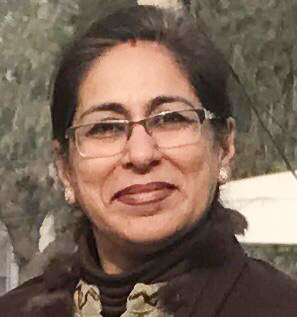
Dr. Meera D. Ansal
Address: Dean, College of Fisheries, Guru Angad Dev Veterinary and Animal Sciences University, Ludhiana
Email: deancof@gadvasu.in, fisheriescof@gmail.com
Call:+91-161-2414061, 2414053
Brief Introduction
Dr. Meera D. Ansal, Head, Department of Aquaculture, College of Fisheries, GADVASU joined as Dean of College of Fisheries on 15th September, 2020. After completing M.Sc. and Ph.D. in Zoology (Specialization: Fish & Fisheries) from Punjab Agricultural University (PAU), she joined as Assistant Professor (Fisheries) in 1999 in Institute of Agriculture, Regional Centre of PAU at Gurdaspur. She has made significant contribution in teaching, research, extension and institutional development. She has guided 11 M.F.Sc./Ph.D students and taught more than 20 UG/PG courses. Under ICAR’s prestigious Niche Area of Excellence Project (2010-2015), she played an instrumental role in aquaculture development in inland salt affected waste areas of south west districts of the State and was conferred with 'Best Success Story' award by the Indian Ecological Society. She is now working to develop ‘Climate Smart Aquaculture Technologies’ viz., diversification involving intercropping with high value species, growth promoting & immuno-stimulating herbal supplements and brood stock management for enhanced aquaculture productivity, without any additional pressure on already depleting multiple use water/land resources.
Recently, she earned an R&D project entitled “Establishment of Capacity Building Resource Centre for Intensive Aquaculture Technologies in Punjab- Recirculatory and Biofloc Aquaculture Systems” with 100% funding of 1.39 crores under PMMSY Center Sector Scheme (CSS) of Department of Fisheries (DoF), Ministry of Fisheries, Animal Husbandry and Dairying (MoFAHD), GOI, to promote intensive aquaculture technologies in the region. With 12 R&D projects and more than 200 publications including research papers, review articles, manuals, books, booklets, pamphlets and extension articles, to her credit, Dr. Meera has also been conferred with ‘Honorary Fellowship' of the Indian Ecological Society.
Former Dean
| Sr. No. | Name | Duration on the post | Date of Retirement | Photograph |
|---|---|---|---|---|
| 1. | Dr. Kamaldeep Kaur | 23-04-2008 to 31-12-2010 | 31-12-2010 | 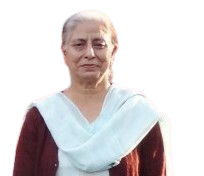 |
| 2. | Dr. Asha Dhawan | 12-01-2011 to 30-11-2017 | 30-11-2017 | 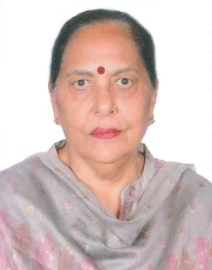 |
| 3. | Dr. Anil Kumar Puniya | 01-12-2017 to 08-01-2018 | 08-01-2018 | 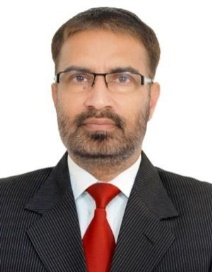 |
| 4. | Dr. Kulbir Singh Sandhu | 09-01-2018 to 14-09-2020 | 14-09-2020 | 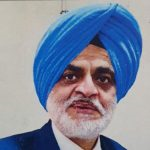 |
Facilities
- Smart Class Rooms well equipped with advanced audio-visual aids for quality education delivery system
- Lecture Hall - Capacity-100
- Committee Room
- College Library
- Laboratories well equipped with high-tech facilities for quality teaching and research.
- UG Practical lab
- Water Quality Lab
- Aquaculture Nutrition Lab
- Microscopy Lab
- Fisheries Resource Management Lab
- Aquatic Animal Health Management Lab
- Cell Culture Lab
- Aquatic Toxicology Lab
- Bioinformatics Cell
- Microbiology and Virology Lab (BSL-2 Facility)
- Fish Engineering Lab
- Fish Processing Technology Lab
- Other Facilties
- Fisheries Museum
- Aqua-House
- PG Student Chambers – 02
- Student Recreational Facility
- Faculty Recreational Facility
- Farm facilties- Adequate farm facilities for teaching ("STUDENT READY PROGRAM"- Experiential Learning and Skill Development), research, demonstration and capacity building at "Instructional cum Research Farm" spread over an area of 6 hectare
- Experimental Culture Pond - Nursery, rearing and stocking
- Demonstration Culture Pond- Semi-intensive Carp Polyculture Pond, Pangas Catfish Culture Pond, Integrated Fish cum Duck Fish farming Pond, Overwintering Pond, Brood stock Ponds, Polyhouse Ponds (Overwintering Facility
- Hatcheries - Circular Chinese Hatchery, Indoor Catfish/Murrel Hatchery, Portable Carp hatchery, Ornamental Fish Hatchery cum Aquarium House
- Different aquaculture Systems/Units -
- Recirculatory Aquaculture System
- Biofloc Aquaculture System
- Automated Aquaponics System
- Flow through System
- Green house
- Feed Mill with Extruder
- Duck Hatchery
- Live Food Culture Unit
- Quarantine Facility
- Azolla Culture Unit
- Waste Water Bioremediation Unit
- Vermicomposting Unit
- Herbal Garden
- Experiential Learning (EL) Modules
- Aquafarming
- Ornamental Fish Culture, Breeding and Seed production
- Fish Processing Technology
- Aquaculture Information Centre - Committee Room, Farmer Library, Technology Exhibition Room and Pantry
- Other Farm Facilities- Feed Stores, Field Stores, FRP Pools and aquaria
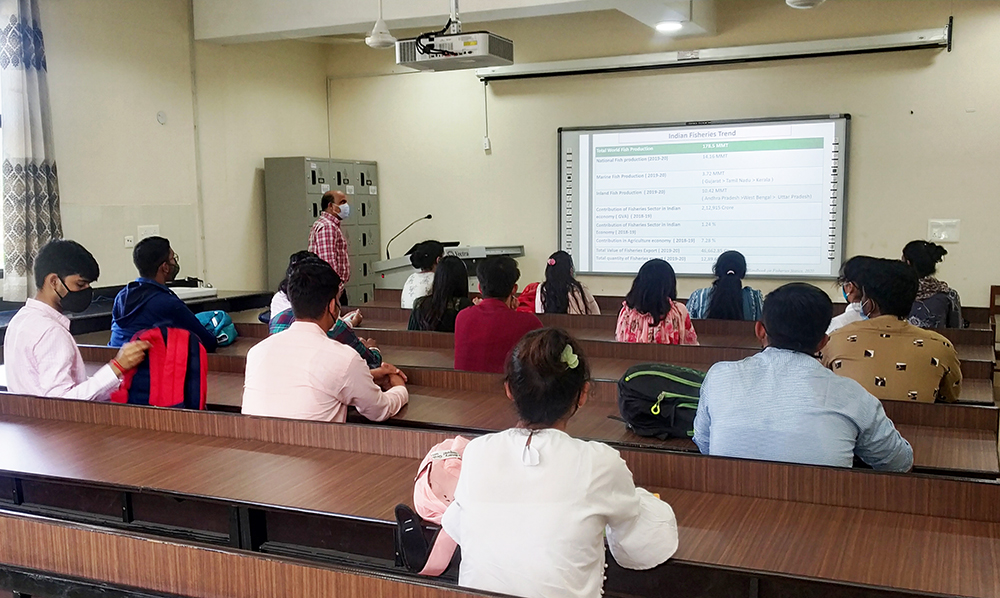 |
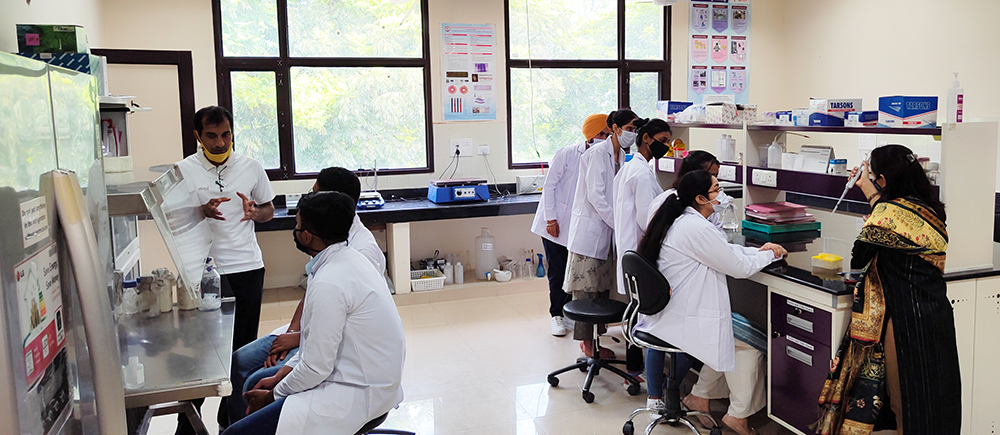 |
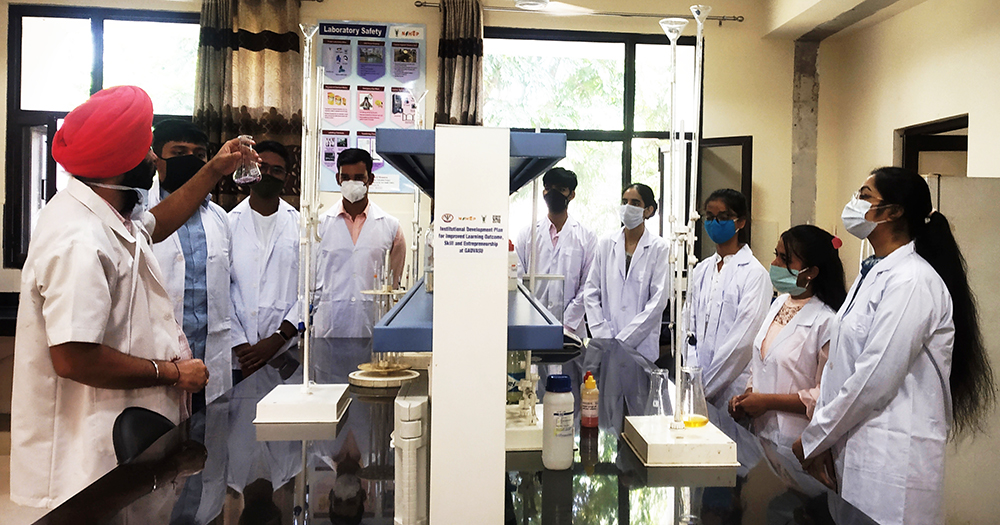 |
|
Smart Class Rooms |
Aquatic Animal Health Management Lab |
Water Quality Lab |
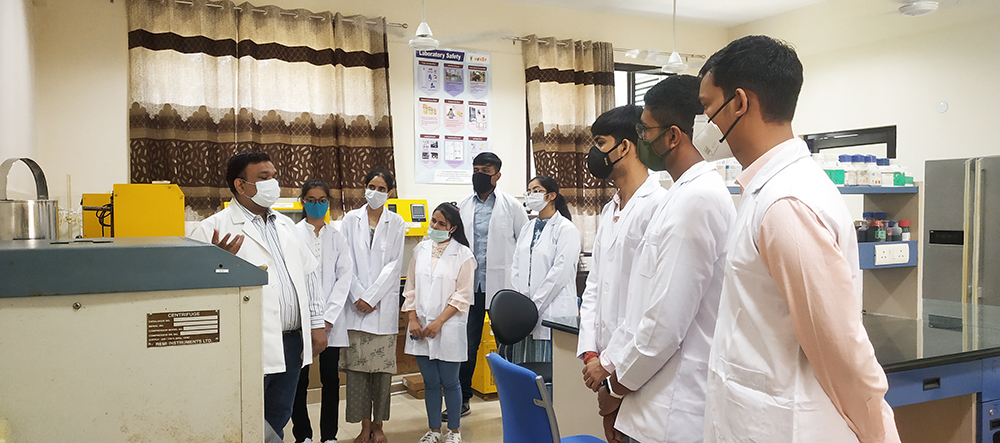 |
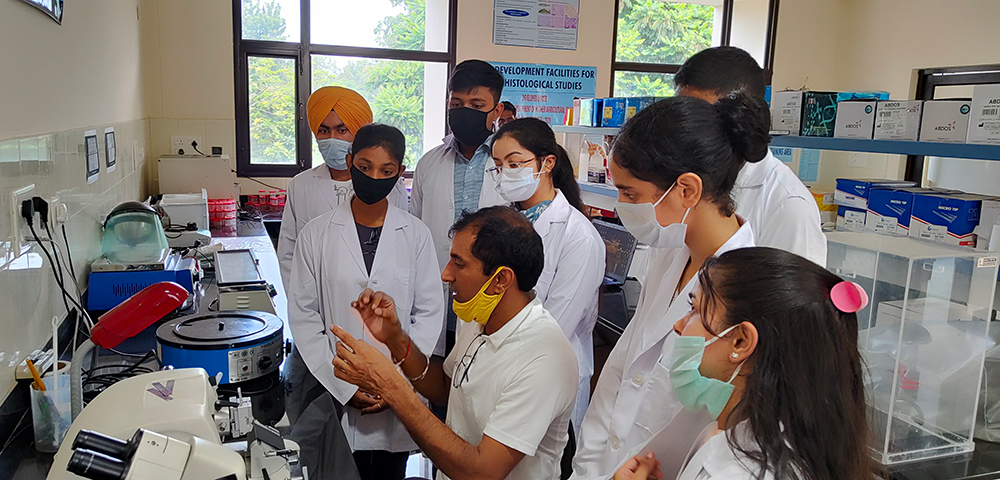 |
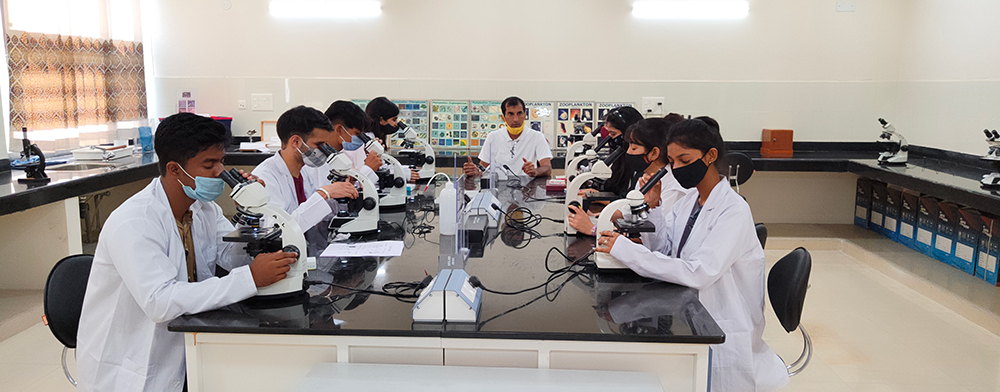 |
|
Aquaculture Nutrition Lab |
Aquatic Toxicology Lab |
Microscopy Lab |
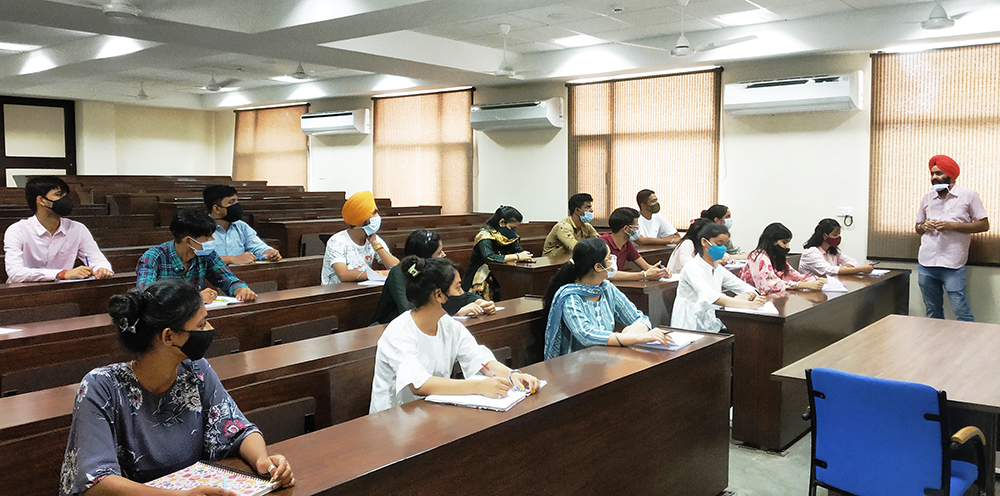 |
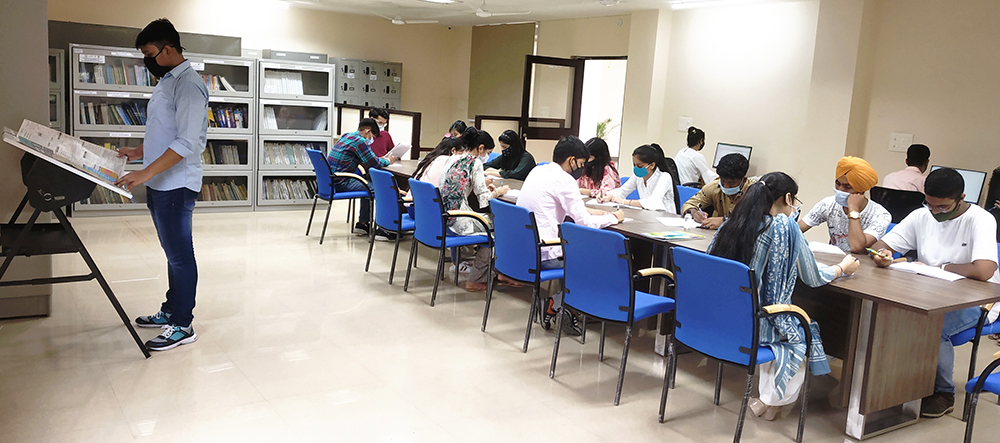 |
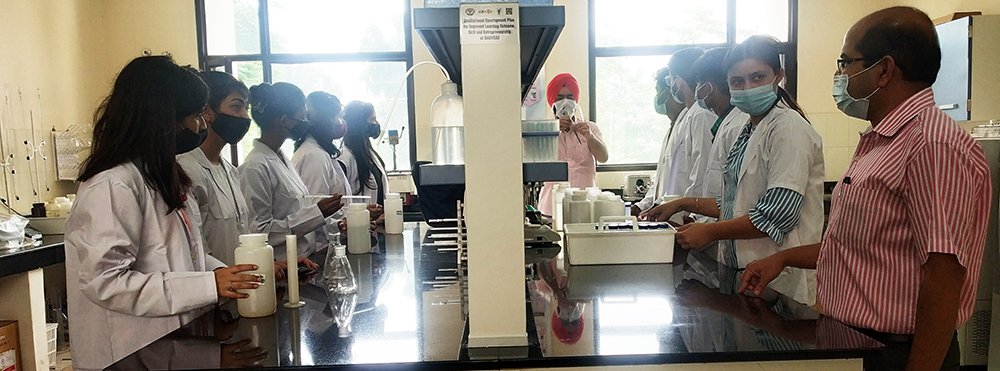 |
| Seminar Room | College Library |
Fisheries Resource Management Lab |
Faculty Detail
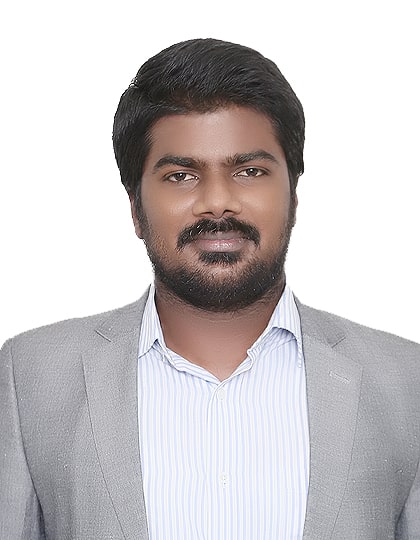
Mr. Vijay Kumar Reddy Surasani
Designation : Scientist (Fisheries)
Contact Address : Department Of Fish Processing Technology, College Of Fisheries, Guru Angad Dev Veterinary & Animal Sciences University, Ludhiana, Punjab 141004
Telephone :
Mobile : +91- 8437490939, 7814947206
Email : vijaykumar@gadvasu.in, vijayreddy.surasani@gmail.com
Academic Credentials
- Bachelor of Fisheries Science (B.FSc.)
- Master of Fisheries Science (M.F.Sc.) in Fish Processing Technology
- Ph.D. in Fish Processing Technology
Teaching appointments
- Fish Processing Technology; Composition of fish and shellfish, quality attributes, processing, preservation, value addition, packaging and storage.
Other appointments
- Vice President of Professional Fisheries Graduates Forum (PFGF), India
- Executive member, GADVASU Teachers Association, GADVASU, Ludhiana, Punjab
Area of research
- Valorization of fish processing waste through its conversion into functional food components. Value addition of underutilized aquatic resources and quality evaluation of fish and fish based products.
Ongoing projects
|
Sr.
No. |
PI/Co-PI |
Title
of Project |
Funding
Agency |
Period |
|
1 |
PI |
Improvement
of livelihood status of the Scheduled-Caste (SC) population of Punjab state
through Biofloc fish farming and value addition of produced fish |
SEED
Division, Department of Science & Technology, Govt. of India |
April,
2023 to March, 2026 |
|
2 |
PI |
|
National
Fisheries Development Board |
December,
2022 to August, 2024 |
|
3 |
Co-PI |
Development
of Phage-based strategies for biocontrol of antibiotic resistant Aeromonas
species in fishery products |
Board
of Research in Nuclear Studies, Department of Atomic Energy, Govt. of India |
December,
2021 to March, 2024 |
|
4 |
PI |
Quality evaluation of fish marketed and consumed in Punjab |
RKVY |
April,
2015 to March, 2018 |
|
5 |
Co-PI |
Processing of carps into different
value-added products & by-products for enhanced economic returns |
RKVY |
April,
2014 to March, 2015 |
Research honours awards
- Alltech Pvt. Ltd., USA – Young Scientist Award-2011
- Venus International Foundation, Chennai – Young Scientist Award-2018
- Society of Fisheries and Life Sciences, Mangalore – Young Scientist Award–2018
No of publications
| Research: 65 | Extension: 12 | Books/Books Chapters: 04 | Manuals: 04 |
|---|
Publication
- Surasani, V. K. R., Raju, C. V., Sofi, F. R., & Shafiq, U. (2022). Utilization of protein isolates from rohu (Labeo rohita) processing waste through incorporation into fish sausages; quality evaluation of the resultant paste and end product. Journal of the Science of Food and Agriculture, 102(3), 1263-1270 (Impact factor: 4.125; NAAS: 9.64)
- Rana, S., Singh, A., Surasani, V. K. R., Kapoor, S., Desai, A., & Kumar, S. (2022). Fish processing waste: a novel source of non?conventional functional proteins. International Journal of Food Science & Technology, https://doi.org/10.1111/ijfs.16104 (Impact factor: 3.61; NAAS: 9.71)
- Surasani, V. K. R., Raju, C. V., Singh, A., & Joshi, S. (2022). Quality changes in fish sausages supplemented with pangas protein isolates as affected by frozen storage and casing material. Journal of Food Science and Technology, 59(6), 2127-2140 (Impact factor: 3.117; NAAS: 8.70)
- Singh, A., Gupta, A., Surasani, V. K. R., & Sharma, S. (2021). Influence of supplementation with pangas protein isolates on textural attributes and sensory acceptability of semolina pasta. Journal of Food Measurement and Characterization, 15(2), 1317-1326 (Impact factor: 3.006; NAAS: 8.43)
- Surasani, V. K. R., Varadaraju, R. C., & Singh, A. (2021). Biochemical, microbial, and textural quality changes in rohu protein isolates supplemented pangas mince sausages packed in LDPE and cellulose casing during frozen storage. Journal of Food Processing and Preservation, 45(9), e15767 (Impact factor: 2.609; NAAS: 8.19)
- Kumari, S., harikrishna, V., Surasani, V. K. R., Balange, A. K., & Rani, A. M. B. (2021). Growth, biochemical indices and carcass quality of red tilapia reared in zero water discharge based biofloc system in various salinities using inland saline ground water. Aquaculture, 540, 736730 (Impact factor: 5.135; NAAS: 10.24)
- Surasani, V. K. R., Raju, C. V., Shafiq, U., Chandra, M. V., & Lakshmisha, I. P. (2021). Influence of protein isolates from Pangas processing waste on physico-chemical, textural, rheological and sensory quality characteristics of fish sausages. LWT-Food Science and Technology, 117, 108662 (Impact factor: 6.056; NAAS: 10.95)
- Gupta, A., Sharma, S., & Surasani, V. K. R. (2021). Quinoa protein isolate supplemented pasta: Nutritional, physical, textural and morphological characterization. LWT-Food Science and Technology, 135, 110045 (Impact factor: 6.056; NAAS: 10.95)
- Sahini, P., Sharma, S., & Surasani, V. K. R. (2020). Influence of processing and pH on amino acid profile, morphology, electrophoretic pattern, bioactive potential and functional characteristics of alfalfa protein isolates. Food Chemistry, 333, 127503 (Impact factor: 9.231; NAAS: 13.51)
- Surasani, V. K. R., Singh, A., Gupta, A., & Sharma, S. (2019). Functionality and cooking characteristics of pasta supplemented with protein isolate from pangas processing waste. LWT-Food Science and Technology, 111, 443-448 (Impact factor: 6.056; NAAS: 10.95)
